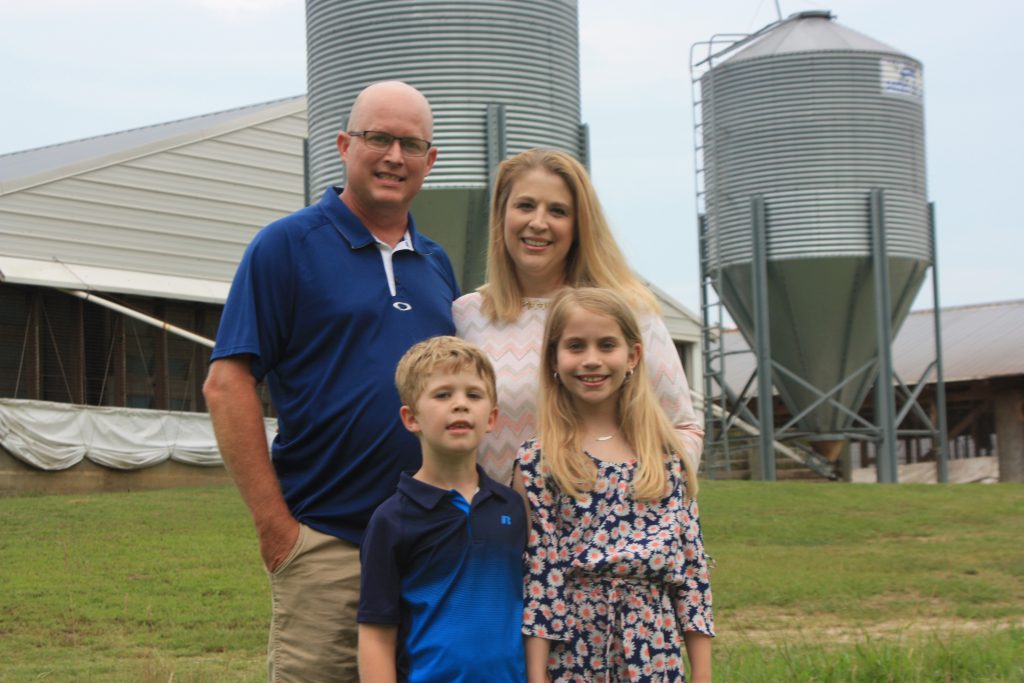 Tim White began by referring to North Carolina’s lagoon and spray field system – which is mandated by state law and regulated by the state government – as a primitive waste-disposal system. Just like the Texas lawyer in the nuisance trials in Raleigh, he painted a gloomy picture of hog farmers, saying that “mists of sprayed swine effluent drift from farm fields to coat nearby houses or cars” and that “neighboring home values have had the daylights kicked out of them.” And, finally, he described the passage in the General Assembly of the 2018 Farm Act as a bitter partisan wrangle with Republicans on one side and Democrats on the other when, in fact, the bill was passed with overwhelming bipartisan support.Let’s see if we can’t add some color to the dark, gloomy picture Mr. White painted of the pork industry in North Carolina.Smithfield Foods has invested over 17 million dollars in research – done by leading professors at North Carolina State University – to develop new and better ways to manage hog waste. In addition, Smithfield was obligated to employ any new method that the professors found to be both effective and economically feasible. However, none of the research yielded that result. Mr. White left that out of his op-ed.Mr. White also seems unfamiliar with home values in rural eastern North Carolina counties. I built my home on our family farm right in front of our existing spray field and it appraised last year for more than when I built it in 2010. Compare that to Mr. White telling readers that hog farms have kicked the daylights out of their neighbors’ home values.Finally, one last word about the 2018 Farm Act: Democrats and Republicans came together to stand with the people who work hard to provide a safe and healthy food supply for this country.
Tim White began by referring to North Carolina’s lagoon and spray field system – which is mandated by state law and regulated by the state government – as a primitive waste-disposal system. Just like the Texas lawyer in the nuisance trials in Raleigh, he painted a gloomy picture of hog farmers, saying that “mists of sprayed swine effluent drift from farm fields to coat nearby houses or cars” and that “neighboring home values have had the daylights kicked out of them.” And, finally, he described the passage in the General Assembly of the 2018 Farm Act as a bitter partisan wrangle with Republicans on one side and Democrats on the other when, in fact, the bill was passed with overwhelming bipartisan support.Let’s see if we can’t add some color to the dark, gloomy picture Mr. White painted of the pork industry in North Carolina.Smithfield Foods has invested over 17 million dollars in research – done by leading professors at North Carolina State University – to develop new and better ways to manage hog waste. In addition, Smithfield was obligated to employ any new method that the professors found to be both effective and economically feasible. However, none of the research yielded that result. Mr. White left that out of his op-ed.Mr. White also seems unfamiliar with home values in rural eastern North Carolina counties. I built my home on our family farm right in front of our existing spray field and it appraised last year for more than when I built it in 2010. Compare that to Mr. White telling readers that hog farms have kicked the daylights out of their neighbors’ home values.Finally, one last word about the 2018 Farm Act: Democrats and Republicans came together to stand with the people who work hard to provide a safe and healthy food supply for this country.
--Chad Herring, Executive Director of NCFF
